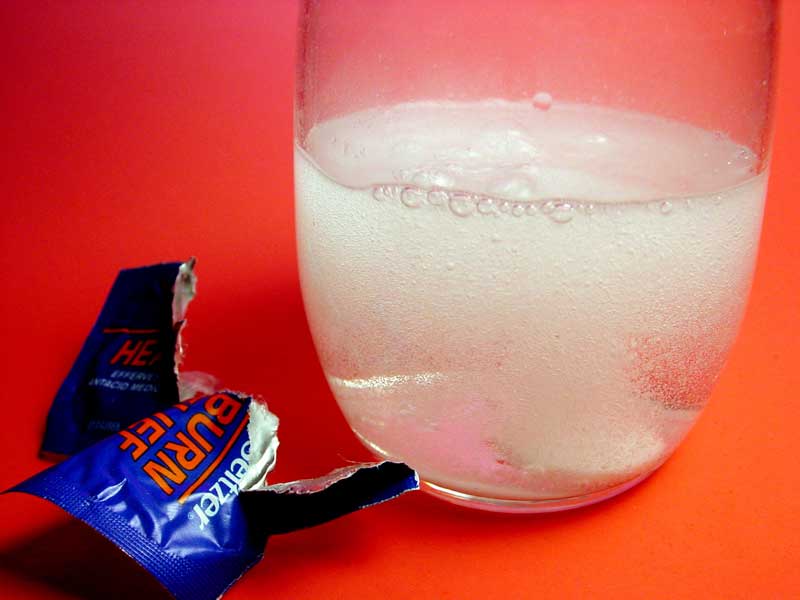Often, I hear people talking about acid reflux or digestive issues, and how they are looking for something to help their heartburn or acid reflux or other stomach issue. What if I told you that many digestive issues are caused by low stomach acid, and not high stomach acid as is perpetuated in the media. It is just a myth that you need drugs to lower your stomach acid, in reality stomach acid is a good thing.
So, why is stomach acid a good thing? First it is part of the design of your digestive system – digestion actually starts in your mouth where your teeth and saliva break down the food. Once you swallow the food it goes into your stomach – the stomach acid kills any pathogens (harmful bacteria) in the food and starts the process of breaking down the nutrients. If the food is not broken down by the stomach acid you can become vitamin or mineral deficient, because you aren’t getting the nutrients from the food. Low stomach acid can leave the body vulnerable to disease or health complications.
So, what happens if you don’t have enough stomach acid? Let’s discuss a few of the possible health conditions that can be caused by low stomach acid.
- Poor nutrient absorption – No matter what you eat, if your body can’t break it down it’s not going to be able to absorb the nutrients in the food. This means you are going to be low in magnesium, calcium, b12, zinc, iron, and all other vitamins and minerals. If you don’t have enough stomach acid, you are not going to be getting the benefits of the food you are eating. This could cause osteoporosis, skin issues, weak hair and nails, problems sleeping, muscle cramps, and others.
- Increased susceptibility to bad bacteria – This means you have a better chance of food poisoning if you have low stomach acid, as it is the first line of defense against bad bacteria. If you don’t have enough stomach acid you aren’t killing the bad bacteria before they get in your gut. This means if you have low stomach acid you might have diarrhea, nausea, leaky gut syndrome, constipation, among other things.
- Acne and Rosacea – Low stomach acid leads to nutrient deficiencies, that can cause problems with your skin. Also, low stomach acid sets the stage for bacterial and fungal overgrowth which can contribute to skin issues. Keep in mind that skin issues start in your digestive tract – they are not just cosmetic. If you have issues with your skin it is a warning sign that something inside your digestive system (gut) is wrong. First line of defense would be probiotics, antioxidants and a mild detox.
- Acid Reflux or heartburn – You might be thinking – “these are caused by too much acid in my system, not low acid”. That is the common misconception that having too much acid causes acid reflux and heartburn. Low stomach acid will decrease the digestion of foods causing them to ferment and bloat the stomach. This bloating will force stomach contents past the partially open sphincter and into the esophagus.
- Not enough amino acids in the blood stream – Without enough acid in your stomach, you cannot break down proteins. Proteins when broken down turn into amino acids. These amino acids affect the neurotransmitters that are in your gut – this can lead to depression or mood swings, problem with your hormones, problems sleeping, autoimmune conditions, hair loss, and others.
So, how do you increase your stomach acid
- Chew your food – A simple but overlooked tip to improve stomach acid levels and digestion is to thoroughly chew your food. Racing through your meals can affect how your body digests your food. Chew your food and take smaller bites to stimulate your digestive enzymes. Also, taking digestive enzymes prior to or directly after a meal will help with digestion and low acid.
- Limit processed foods – Processed foods and sugars can cause inflammation in your stomach, and decrease stomach acid. Eliminating processed foods from your diet and eating more fruits and vegetables will increase your stomach acid.
- Eat fermented vegetables – Fermented vegetables such as sauerkraut, kimchi, and pickles will improve stomach acid when eaten. They have a probiotic effect on the body and can increase your stomach acid as well as improving your immune system. In addition, taking a high-quality probiotic daily can help to improve your stomach acid.
- Drink apple cider vinegar – Apple cider vinegar is made from crushed apples, bacteria and yeast. Raw apple cider vinegar can increase stomach acid levels by putting more acid into the digestive tract. To use apple cider vinegar, dilute a small amount with water and drink it before your meal. It is best to use a brand such as Braggs because it is “raw” vinegar.
- Take a teaspoon of Manuka Honey – Manuka honey comes from New Zealand; it is antimicrobial, so it can help fight bad bacteria in the stomach that can occur when you have low stomach acid. Manuka honey also promotes the growth of good bacteria in your gut
.
In addition, I recommend discussing with your doctor getting off any anti-acid medications you may be on, and trying to increase your stomach acid naturally. Everyone should be taking a high-quality probiotic daily. As always if you have any questions please contact me I am always here to help you.

